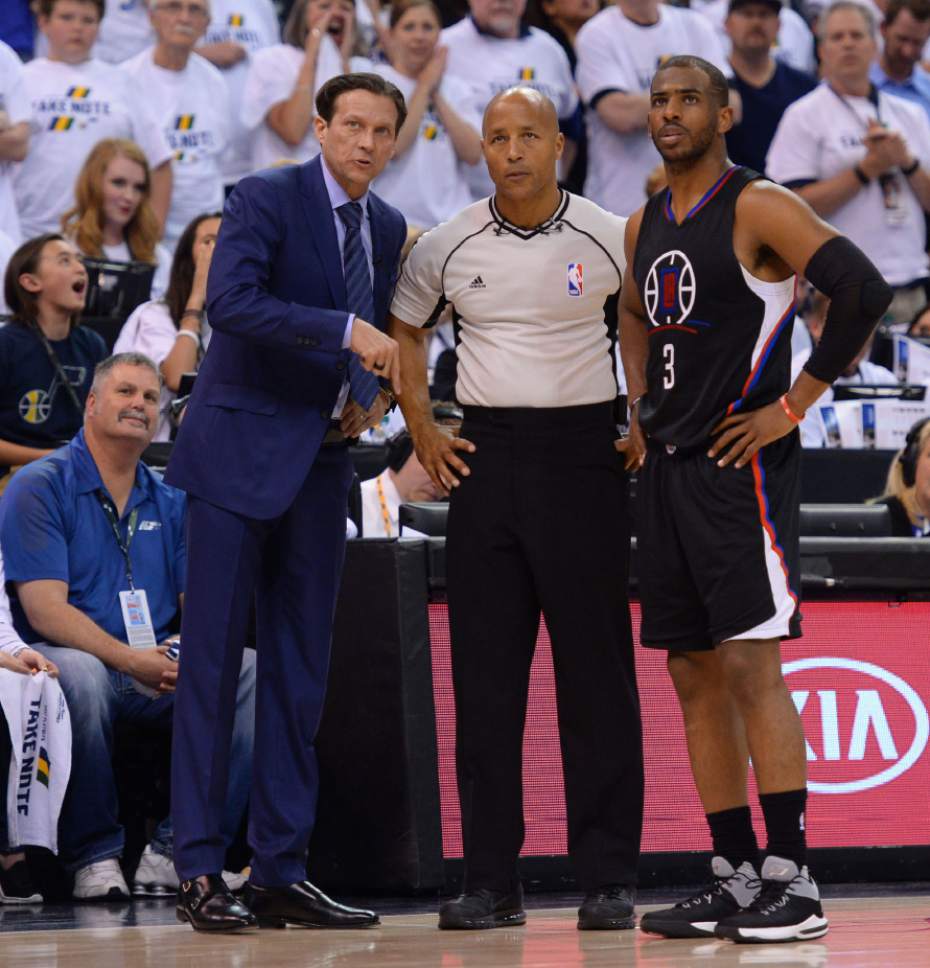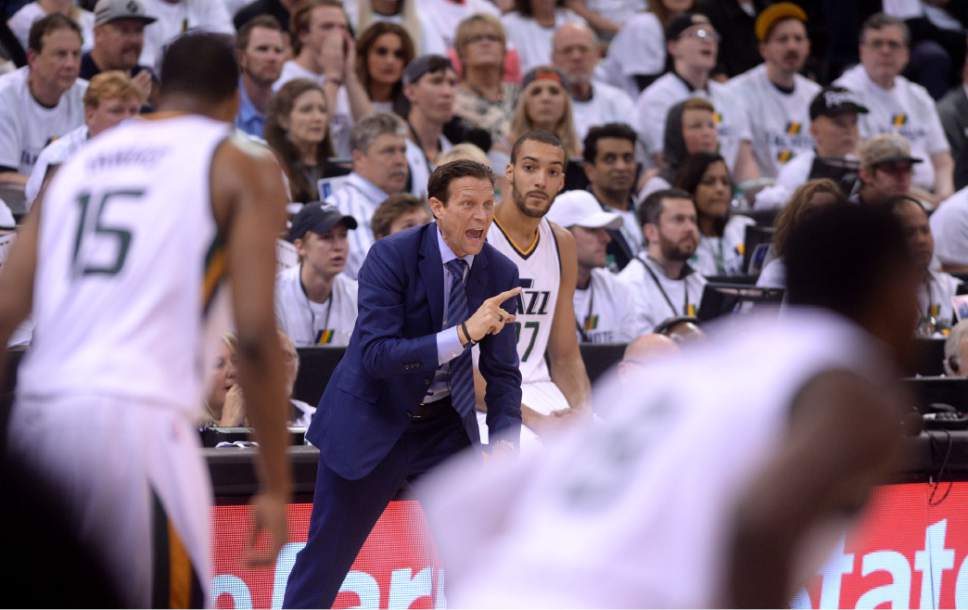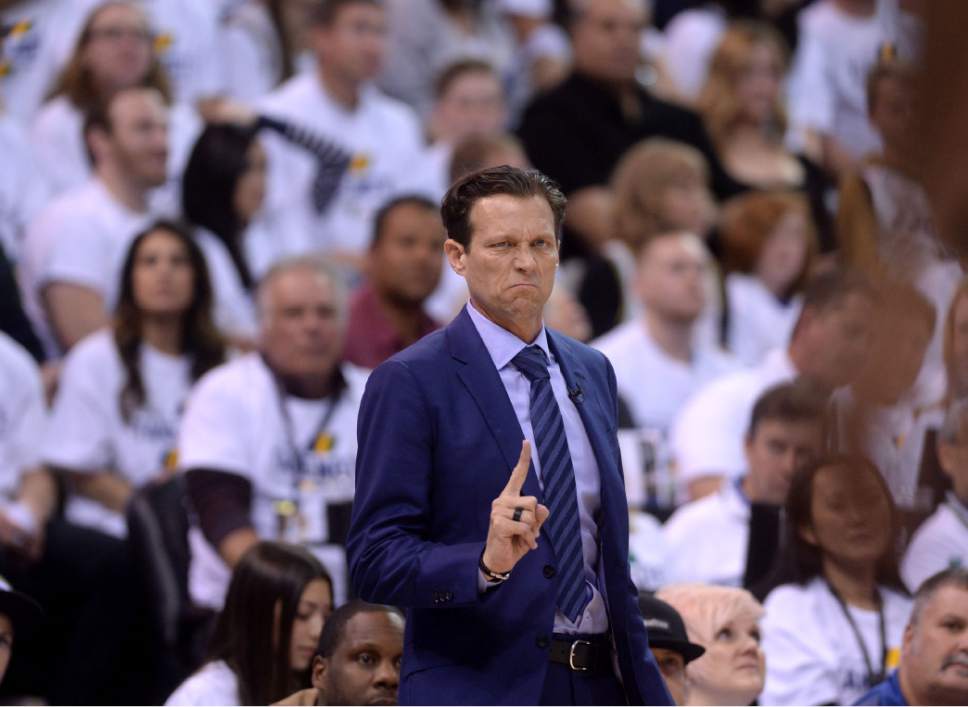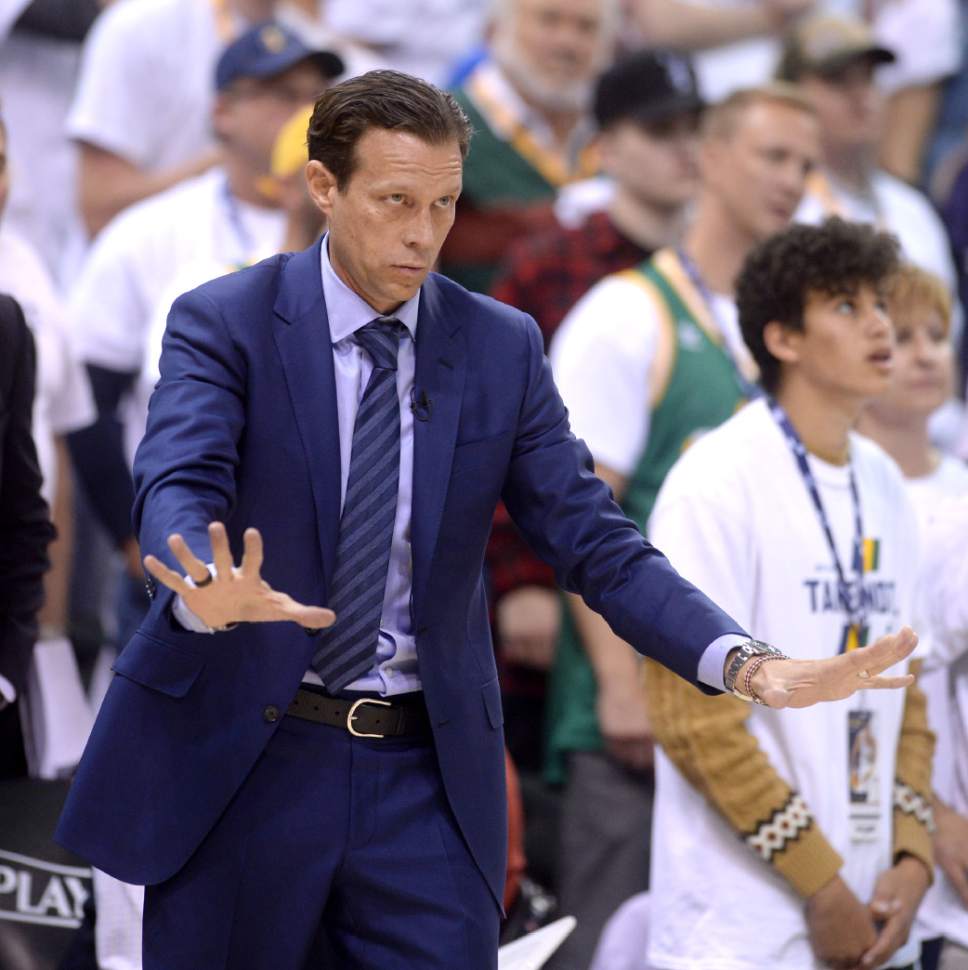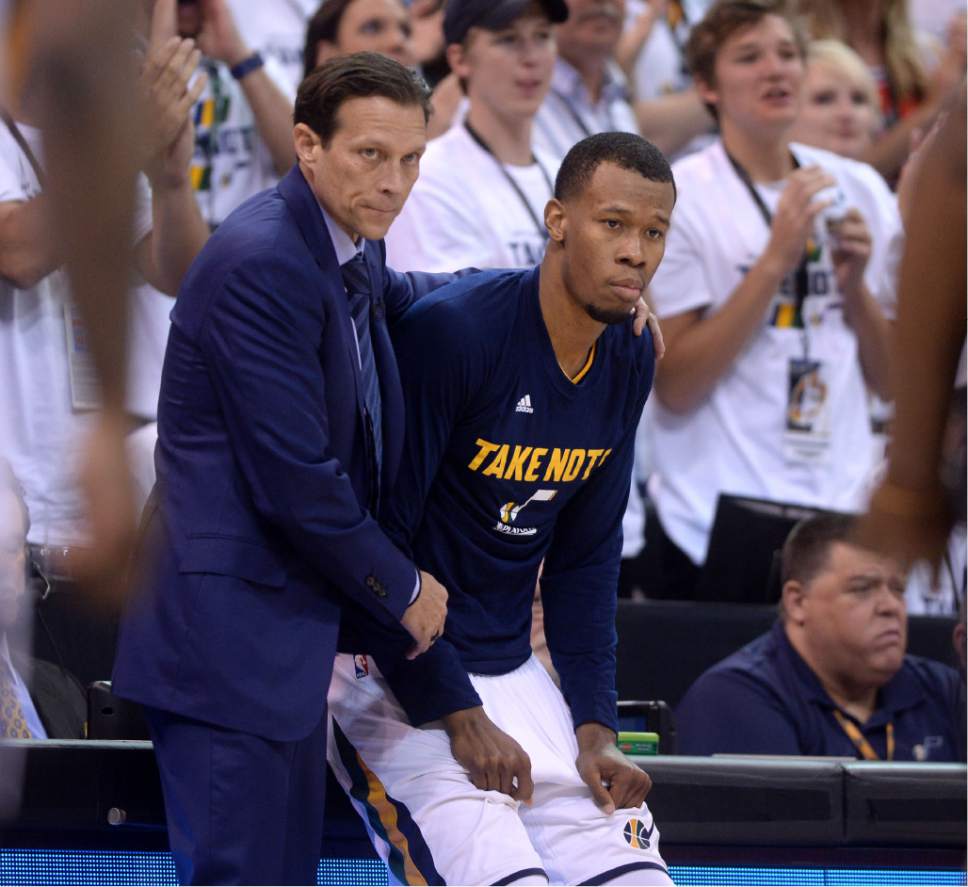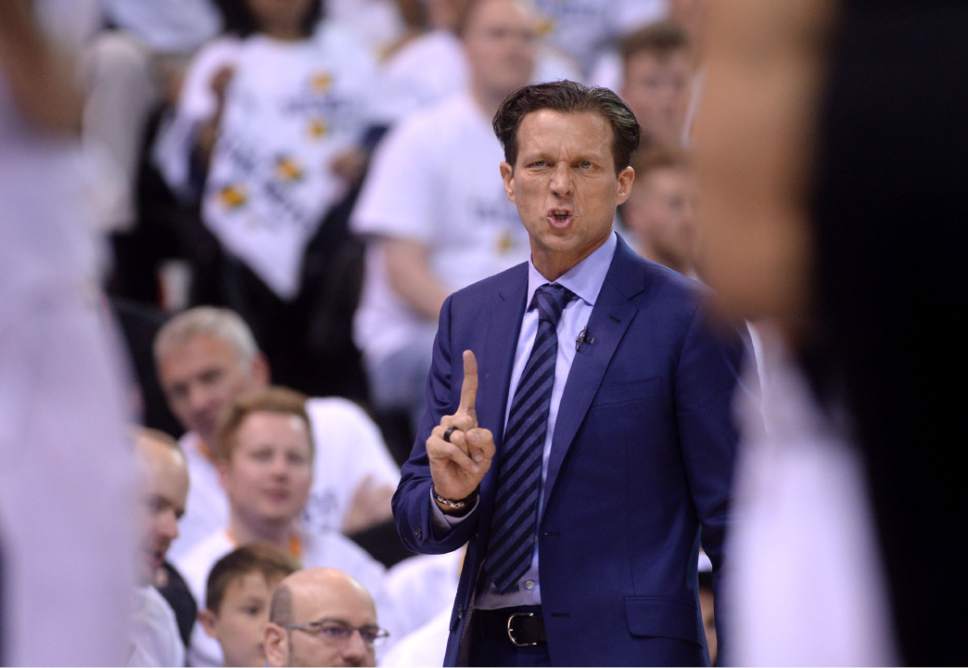This is an archived article that was published on sltrib.com in 2017, and information in the article may be outdated. It is provided only for personal research purposes and may not be reprinted.
Quin Snyder is a smart, passionate man.
Nobody doubts that.
He should be the NBA's coach of the year.
That's where doubt floods into the picture.
But this column blows four freeway exits past advocacy for any kind of award.
Snyder's mind and perspective for — and approach to — what he does for a living are unique. How many NBA coaches have a brain big enough for both a law degree and an MBA, and still immerse themselves so thoroughly in the game to the extent it darn-near imprisons them?
One.
So, the Jazz coach is intelligent, emotional, and also grateful — thankful for a lot of things, from coaching's macro to its micro level. In the aftermath of Game 4 of the Jazz-Clippers playoff series, Snyder thanked and praised nearly his entire team. Joe Johnson? "We're lucky to have him." Derrick Favors? "Can't say enough about him." Rodney Hood? "Playing with more of a purpose." Gordon Hayward? "He wanted to play." Rudy Gobert? "He's back." Joe Ingles? "Hopefully, he won't go down."
Not a single bit of positivity was disingenuous because … well, when it comes to Snyder's relationship with his players, in his own words, "Honest communication is really important."
Which is to say, Snyder's use of B.S. is pretty much nonexistent.
Unless it's done in good fun. Once, when a writer was interviewing Ingles over a two-hour period for an in-depth profile, the coach, noticing the conversation from across a practice court, yelled: "Geeeeez, I can barely stand to be around Joe for a few minutes during practice. How you holding up?"
He followed the jab, though, with the truth: "We have diverse guys on this team. But Joe's helped us be and stay connected. I've been hard on him, at times. But he's been a bridge, someone I can rely on … to keep it together, to keep everyone focused. There's trust there and it's appreciated."
Ingles' response? "That guy over there is one of the few people who believed in me."
Snyder, then, is smart, passionate, grateful, a forthright communicator, and he's a believer, leading a team that not so long ago won 25 games into a team that won 51 this year, including qualification for the playoffs.
He does the things a lot of coaches do — studies his players, develops them, breaks down film, obsesses over minute details — but he does those things in a manner, to a degree that sets him apart from the maniacal norm. Diversion, for him, is attempted, often failed. Sleep is a suggestion, often ignored. Eating … well, that happens, on a good day.
Finding the best method for the Jazz to get wins, game by game, putting them in the best position to embrace victory, come what may, especially in the postseason, never really stops being beamed up on the big screen in his big brain.
"Yeah," he concurs. "Yeah."
He tries to deny it, wants to tweak it, quiet it, hopes to become more well adjusted, particularly since his attention to other significant things could run so deep, could be so worthwhile. But …
But.
Basketball nudges him. It will not leave him be. It constantly calls him. It is his calling.
And in a year when his efforts have rewarded him, when his team has made that huge jump — an additional 11 wins in the regular season, and the two, so far, in the playoffs, despite a slew of injury and adversity — there's no easing up now. The mere thought is objectionable, incomprehensible to him.
Four games into the postseason, after Gobert hyperextended his knee and Hayward suffered food poisoning, Snyder has mixed and matched his lineups, utilizing his players in different ways, in varying roles, and, to date, his decisions have buoyed the Jazz, evidenced by the series being level at two games a piece. He's rotated his bigs, spun all four of his point guards into action, tweaked his wings, assigned Ingles to cover Chris Paul, at times.
Although this is Snyder's first taste of the playoffs as a head coach, Jazz GM Dennis Lindsey says his training as a longtime assistant is more than adequately vast: "Quin's no rookie. His mindset, his preparedness is big. He's had many years of experience."
He certainly has been the match of Doc Rivers, a coach who's already won an NBA title.
When talk turns to the coach of the year award, Snyder is flattered, indeed, but he immediately deflects credit to his team.
"Any evaluation of me is through the lens of the players," he says. "They're the ones that define a coach. You just try to maximize what they can do. It's about what they're doing on the court, their willingness to listen, make adjustments and play. In that sense, I couldn't be more pleased and lucky.
"I don't really have an objective measure. Through the season, we've tried to adjust to the circumstances, especially the ones you can't control. You can't lament them, you just adjust. The challenge for us has been to move on, but make changes given the situation that exists. I circle back to our guys — Rudy, Gordon, Joe have been there. And all the other guys. Whatever the circumstances are, they believe. And that's the way we as coaches try to live. We believe. We all help each other.
"This group has been able to band together."
And follow the smart, passionate, grateful man with the game in his head and the baton in his hand, leading that band to new sounds, new heights.
GORDON MONSON hosts "The Big Show" with Spence Checketts weekdays from 3-7 p.m. on 97.5 FM and 1280 AM The Zone. Twitter: @GordonMonson.


